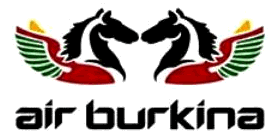 Air Burkina’s Emergency Boeing 737 ACMI Lease Highlights Fleet Vulnerabilities in West Africa
Air Burkina’s Emergency Boeing 737 ACMI Lease Highlights Fleet Vulnerabilities in West Africa
Air Burkina has swiftly moved to secure an emergency ACMI lease for a Boeing 737 to sustain its scheduled flights after its sole owned aircraft, an Embraer E190LR, was grounded for maintenance. This short-term lease, effective from August 11 to September 11, 2025, covers the full ACMI package—Aircraft, Crew, Maintenance, and Insurance—ensuring uninterrupted service during a critical period for the airline.
The Embraer E190LR, a 12-year-old aircraft (MSN 19000625, registration XT-ABI), was acquired in September 2024 as part of a broader fleet renewal plan that aimed to modernize Air Burkina’s operations with a second E190 also in the pipeline. However, since July 5, 2025, the E190LR has been sidelined in Johannesburg for maintenance, exposing the operational fragility that single-aircraft carriers in Africa often face.
In the meantime, Air Burkina has been operating a nearly 34-year-old Boeing 737-300 (MSN 25048, registration 5A-GRR) on a wet lease from Libya’s Ghadames Airlines. This interim aircraft entered service on July 2, 2025, but is slated to be replaced by the newly leased Boeing 737 under the ACMI agreement starting mid-August.
Air Burkina’s recent history underscores the challenges of maintaining consistent operations with a limited fleet. The airline, one of Africa’s oldest, resumed flights in October 2024 after a six-month suspension triggered by financial and operational difficulties. During this hiatus, it returned three leased Embraer jets—two E195s and one E175—to Nordic Aviation Capital as part of a restructuring effort aimed at stabilizing the business.
Since March 2024, under the leadership of Azakaria Traoré, Air Burkina has been on a phased recovery path focused on fleet stabilization and route continuity. The airline currently connects key West African cities such as Abidjan, Accra, Bamako, Bobo-Dioulasso, Cotonou, Dakar, Lomé, Niamey, and its Ouagadougou hub, playing a vital role in regional connectivity.
The decision to lease a Boeing 737 on an ACMI basis highlights the precarious operational environment for smaller African carriers that rely heavily on a minimal number of aircraft. Such carriers are particularly vulnerable to disruptions caused by maintenance or technical issues, which can quickly cascade into service interruptions and revenue losses.
While the identity of the ACMI provider remains undisclosed, this move reflects a growing trend among African airlines to adopt flexible leasing solutions to manage fleet risks and maintain service reliability. ACMI leases, which bundle aircraft with crew, maintenance, and insurance, offer a practical stopgap for airlines facing unexpected aircraft downtime, especially in markets where access to spare aircraft is limited.
Air Burkina’s situation also sheds light on broader challenges in the African aviation sector, including the high costs and logistical complexities of aircraft maintenance, limited access to financing for fleet expansion, and the operational risks inherent in single-aircraft operations. The airline’s ongoing efforts to modernize its fleet and expand its network are critical to its survival and growth in a competitive regional market.
As Air Burkina navigates this transitional phase, the airline is expected to provide updates on the progress of its grounded Embraer E190LR’s maintenance and the operational impact of the ACMI lease. For West African aviation stakeholders, this case serves as a reminder of the importance of fleet resilience and strategic planning in sustaining air connectivity across the continent.
